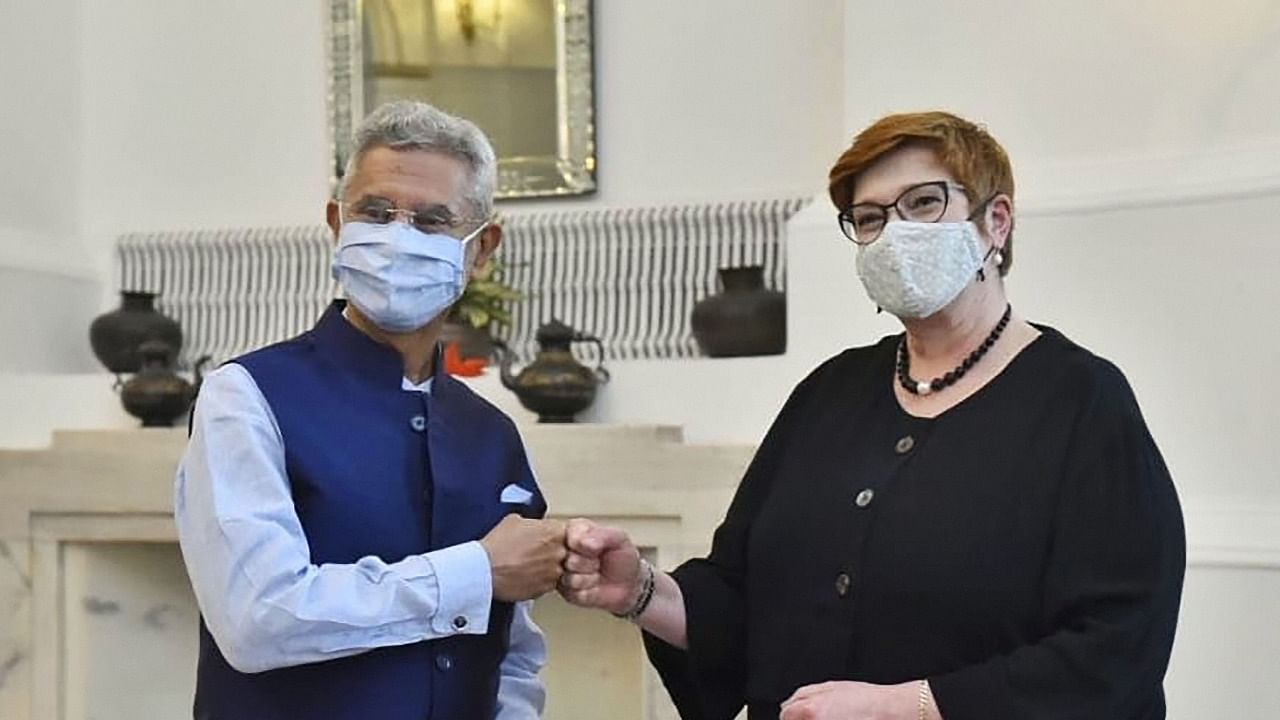
India on Saturday for the first time publicly expressed concern over the lack of inclusivity in the new interim government the Taliban recently announced in Afghanistan.
On the 20th anniversary of the 9/11 attacks on the United States, External Affairs Minister S Jaishankar joined his Australia counterpart Marise Payne to stress that Afghanistan should not turn into a safe haven for terrorists again. They also tacitly expressed concern over reports of violation of human rights as well as the rights of the women and minorities.
“Afghanistan must not allow its soil to be used in any manner, by anybody for terrorism,” Jaishankar said after he and Defence Minister Rajnath Singh hosted their counterparts from Australia, Payne and Peter Dutton, for the first bilateral 2+2 dialogue. “We do share a very strong interest in ensuring that Afghanistan never again becomes a safe haven for the breeding or the training of terrorists and that is an abiding concern of the international community,” added the Australian Foreign Minister. “The future of Afghanistan remains a central concern to both of our countries.”
The Taliban on Tuesday announced an interim Afghan government dominated by the Pashtuns with hardly any representative of the other ethnic communities of Afghanistan.
Most of the top brass of the all-male Taliban government are still under United Nations sanctions. It also has no representative of women of Afghanistan.
“There are issues of concern about the inclusiveness of the dispensation, concerns about treatment of women and minorities, matters related to travel of Afghans issues regarding humanitarian assistance,” Jaishankar told journalists about his and Singh’s discussion with Payne and Dutton on Afghanistan.
“I would also strongly reinforce Australia's views in relation to the position of women and girls. For 20 years, we have worked with the international community and the people of Afghanistan, to ensure that the circumstances for women and girls in relation to education participation in the workforce, the protection of their basic rights were preserved and in fact allowed to grow,” said Payne.
She said that Australia stood with India and other members of the international community in seeking to ensure that the progress achieved in protecting the rights of women of Afghanistan was not wound back.
The statements from India and Australia came on the occasion of the 20th anniversary of the September 11, 2001 terrorist attacks in the United States. The attacks had triggered the US to launch a military offensive against the mastermind Osama Bin Laden and his al-Qaeda in Afghanistan and resulted in the ouster of the Taliban regime led by Mullah Omar in Kabul. Two decades later, the Taliban militants on August 15 last took over Kabul after occupying many provinces in a swift military campaign across Afghanistan, taking advantage of the withdrawal of troops by the US.
Watch latest videos by DH here:
